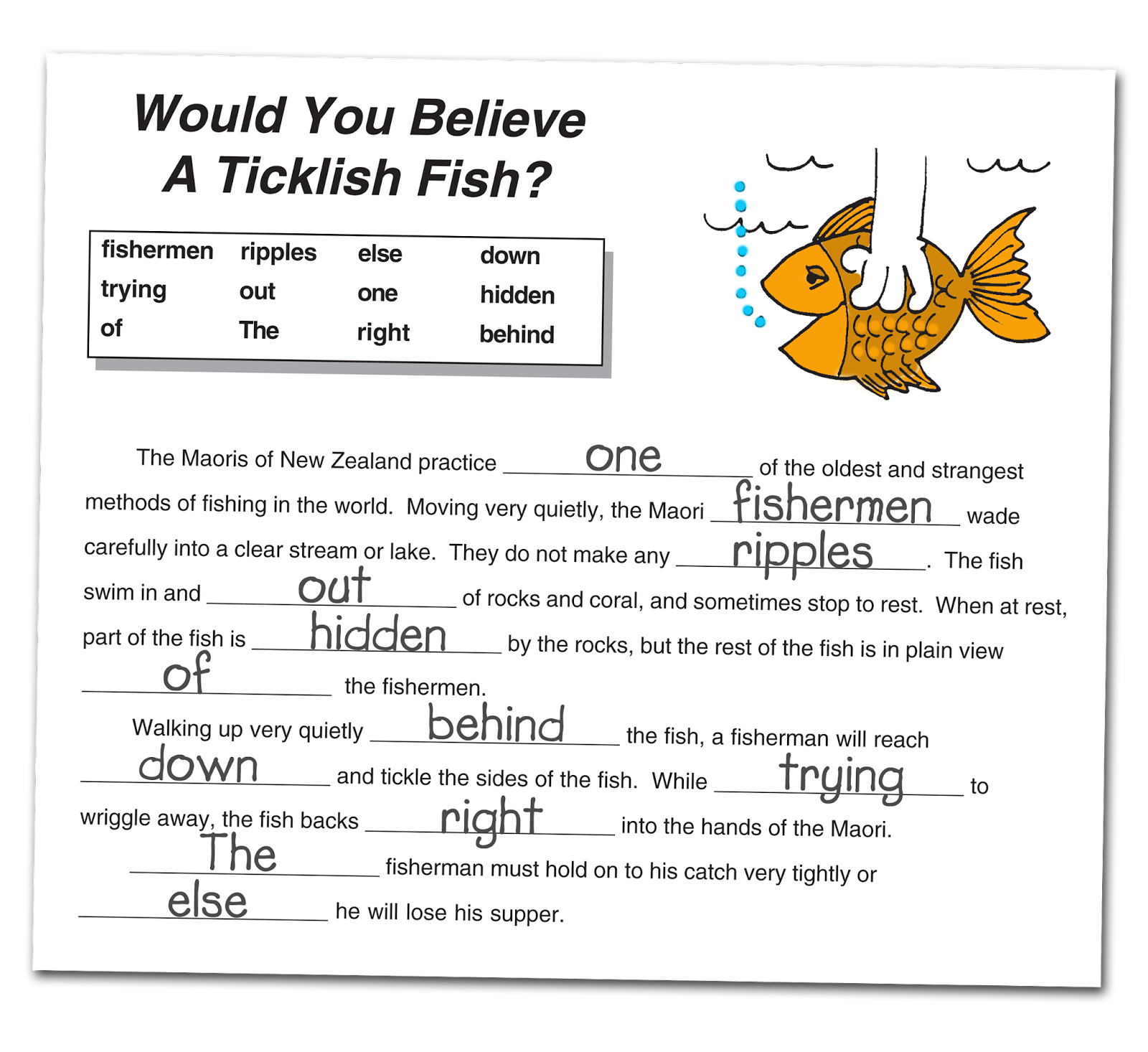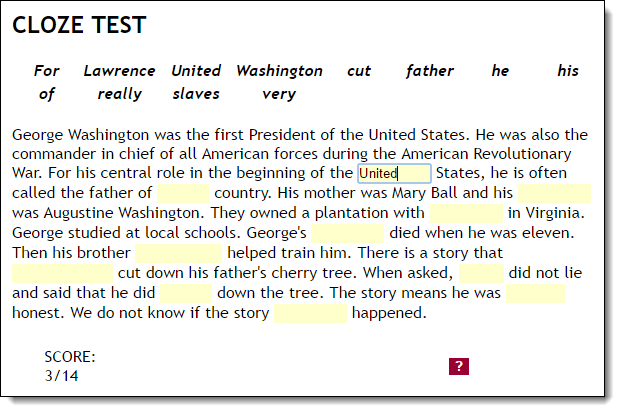A CLOZE PASSAGE is a contextual analysis strategy that helps students learn to predict and verify word meaning of unfamiliar words or familiar words that have new/unusual meanings by searching for clues in nearby words, sentences, and paragraphs of a text. It is used before reading a text.
- The concept of cloze passages was developed by William W. Cloze who came up with a technique to test language proficiency and learning skills of reading in students. He also taught them to figure out which words are missing from the text.
- The cloze passage consists of a short text with missing words or blanks. These blanks will be replaced by the correct words. Then, test takers have to figure out which words were missed from the original passage and write their guesses in the correct answers space.
Do you want to speak and write good English? Doing this activity every day can help
you. Do this activity even when you go to classes VII and VIII. It is called: Self-Created
Cloze.
You can use your English textbook or any other book in English for this activity. You
will also need an extra notebook for this activity. Try to write at least one paragraph
every day.
Topical Activity:
Here are the two main steps that you need to follow:
a) Choose a paragraph from the Reading Comprehension section of your English
textbook or any other book in English.
b) Mark or underline every 8th word.
c) Open your notebook. Draw a margin and put the date.
d) Copy the paragraph in your best handwriting in your notebook
e) Do not write the marked/underlined word. Draw a blank line where the word is.
f) Close the books. Take a break of half an hour.
g) Take out your notebook and fill in the blanks without looking at the original
paragraph.
a) Open your notebooks.
b) Have you put in a margin?
c) Have you put in the date?
d) Have you started the paragraph two-finger space away from the margin?
e) Does the writing look neat?
f) Open your textbook and check your answers in the blanks.
g) Give yourself one mark for each correct answer.

Sample Cloze Test



